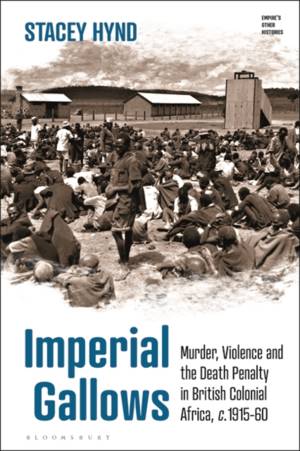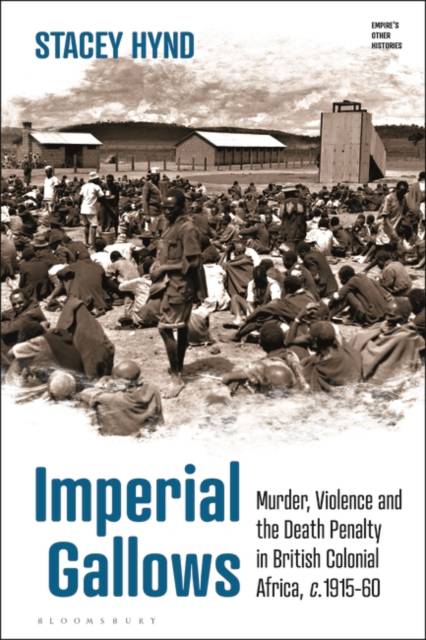
- Retrait gratuit dans votre magasin Club
- 7.000.000 titres dans notre catalogue
- Payer en toute sécurité
- Toujours un magasin près de chez vous
- Retrait gratuit dans votre magasin Club
- 7.000.0000 titres dans notre catalogue
- Payer en toute sécurité
- Toujours un magasin près de chez vous
Imperial Gallows
Murder, Violence and the Death Penalty in British Colonial Africa, c.1915-60
Stacey Hynd
195,45 €
+ 390 points
Description
Not just a method of crime control or individual punishment in Britain's African territories, the death penalty was an integral aspect of colonial networks of power and violence. Imperial Gallows analyses capital trials from Kenya, Nyasaland and the Gold Coast to explore the social tensions that fueled murder among colonised populations, and how colonial legal cultures and landscapes of political authority shaped sentencing and mercy. It demonstrates how ideas of race, ethnicity, gender and 'civilization' could both spare and condemn Africans convicted of murder in colonial courts, and also how Africans could either appropriate or resist such colonial legal discourses in their trials and petitions.
In this book, Stacey Hynd follows the whole process of capital punishment from the identification of a murder victim to trial and conviction, through the process of mercy and sentencing onto death row and execution. The scandals that erupted over the death penalty, from botched executions and moral panics over ritual murder, to the hanging of anti-colonial rebels for 'terrorist' and emergency offences, provide significant insights into the shifting moral and political economies of colonial violence. This monograph contextualises the death penalty within the wider penal systems and coercive networks of British colonial Africa to highlight the shifting targets of the imperial gallows against rebels, robbers or domestic murderers. Imperial Gallowsdemonstrates that while hangings were key elements of colonial iconography in British Africa, symbolically loaded events that demonstrated imperial power and authority, they also reveal the limits of that power.
In this book, Stacey Hynd follows the whole process of capital punishment from the identification of a murder victim to trial and conviction, through the process of mercy and sentencing onto death row and execution. The scandals that erupted over the death penalty, from botched executions and moral panics over ritual murder, to the hanging of anti-colonial rebels for 'terrorist' and emergency offences, provide significant insights into the shifting moral and political economies of colonial violence. This monograph contextualises the death penalty within the wider penal systems and coercive networks of British colonial Africa to highlight the shifting targets of the imperial gallows against rebels, robbers or domestic murderers. Imperial Gallowsdemonstrates that while hangings were key elements of colonial iconography in British Africa, symbolically loaded events that demonstrated imperial power and authority, they also reveal the limits of that power.
Spécifications
Parties prenantes
- Auteur(s) :
- Editeur:
Contenu
- Nombre de pages :
- 272
- Langue:
- Anglais
- Collection :
Caractéristiques
- EAN:
- 9781350302648
- Date de parution :
- 30-11-23
- Format:
- Livre relié
- Format numérique:
- Genaaid
- Dimensions :
- 156 mm x 234 mm
- Poids :
- 557 g

Les avis
Nous publions uniquement les avis qui respectent les conditions requises. Consultez nos conditions pour les avis.






